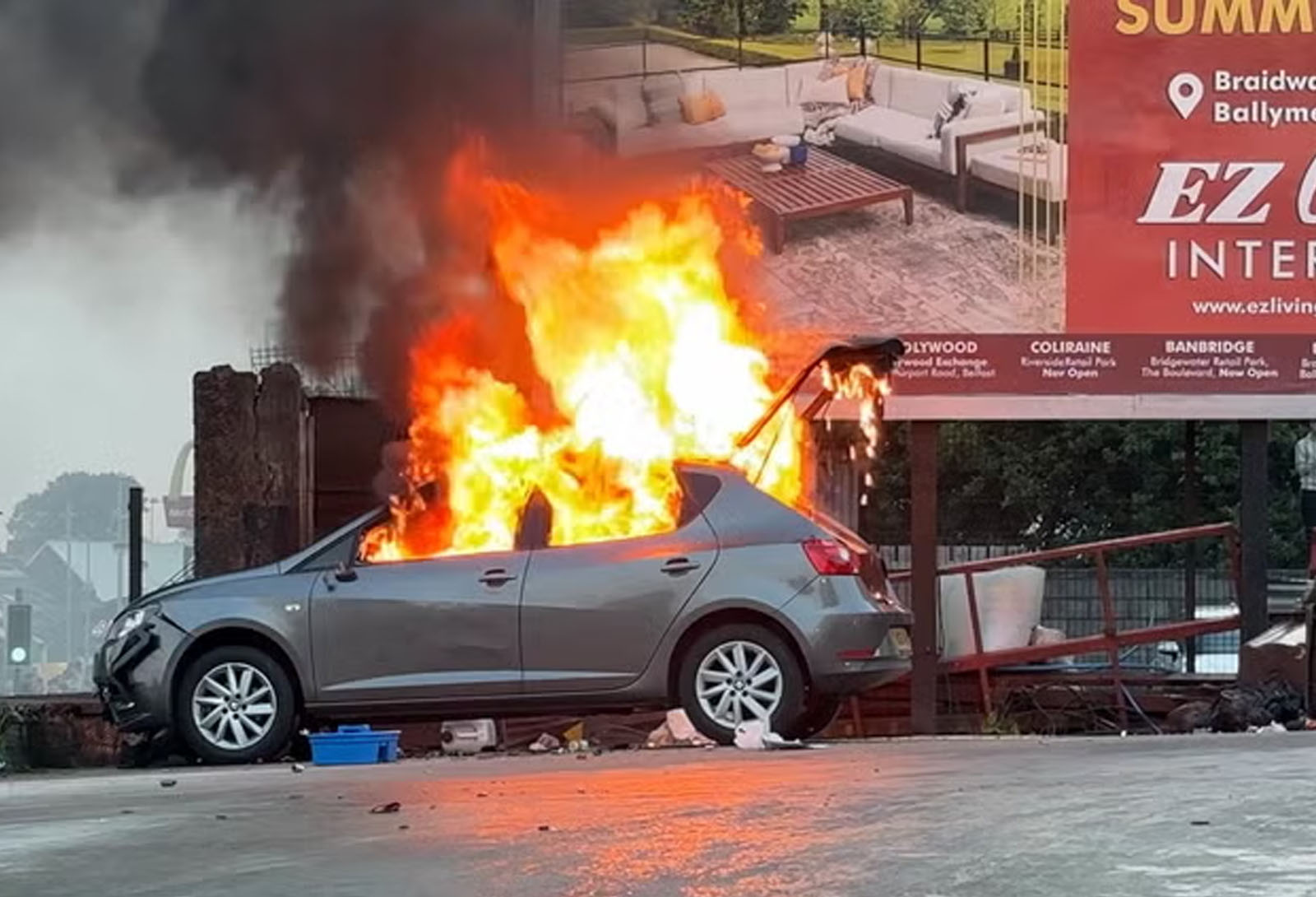For the second night in a row, violent riots erupted in Ballymena, Northern Ireland, as hundreds of masked protesters clashed with police following demonstrations over an alleged sexual assault. The unrest quickly escalated, with rioters torching homes and vehicles while hurling petrol bombs, rocks, and scaffolding poles at officers. Police in full riot gear, backed by armored vehicles, deployed water cannons and non-lethal rounds to disperse the crowds.
The violence marks another flashpoint in Northern Ireland, where sporadic unrest persists 27 years after the 1998 Good Friday Agreement ended the decades-long Troubles. Despite the peace deal, tensions occasionally flare, particularly in working-class communities where distrust of authorities remains high. A Reuters witness reported rioters tearing down walls to gather projectiles before launching attacks on police lines.
Authorities managed to restore order in Ballymena—located 45 km (28 miles) from Belfast—by 1:00 AM local time. However, the repeated nights of chaos have raised fears of prolonged instability. Police have not yet confirmed whether the riots were directly linked to the initial protest over the alleged assault or if broader sectarian or anti-establishment sentiments fueled the violence.
The clashes come at a sensitive time for Northern Ireland, where political divisions and economic frustrations continue to simmer. While major sectarian conflict has largely faded, incidents like these serve as a stark reminder of the region’s fragile peace. As investigations continue, authorities face mounting pressure to prevent further escalation while addressing the underlying grievances driving such unrest.














